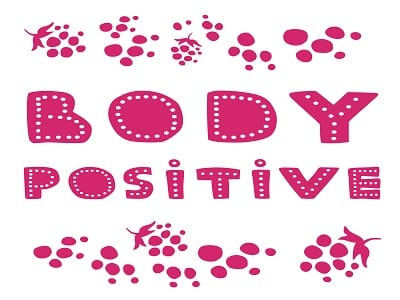Body image refers to how we perceive our physical self, how we think others perceive our appearance, and any negative or positive thoughts that accompany that perception. Beliefs about our appearance may or may not be accurate but nonetheless affect our self-esteem and self-acceptance.
A positive body image means you are comfortable with your body the way it is. A negative body image reflects a distorted and dissatisfied view of your body, which many contribute to feelings of shame, self-consciousness, depression, and low self-esteem.
Children as young as 3 years old can begin to form beliefs about what a “desirable” body looks like. How their parents express satisfaction or dissatisfaction with their own adult bodies affects how children feel about their developing bodies. As children grow older, negative comments from parents, coaches, peers, and society at large continue to shape beliefs about body image, abilities, and overall worthiness.
Having a negative body image may contribute to mental health issues, including eating disorders. Body dysmorphic disorder is the most severe form of negative body image.
Body Dysmorphic Disorder
A physician may diagnose body dysmorphic disorder when a person obsessively focuses on what they consider to be an unacceptable defect in their appearance. In reality, the perceived flaw is barely detectable to others and may even be non-existent. However, the individual may feel so self-conscious or anxious about the “defect” they avoid social situations.
Several studies have linked body dysmorphic disorder with eating disorders. A recent study published in the journal Eating and Weight Disorders found those with an eating disorder are 12 times more likely to suffer from body dysmorphic disorder.
Symptoms include obsessively checking your appearance, considering yourself “ugly,” missing school, work or social engagements so others won’t see you, having extreme anxiety or emotional distress about your appearance or exhibiting harmful behavior, which may include disordered eating.
Cosmetic Surgery
Researchers have identified a strong connection between body dysmorphic disorder and cosmetic surgery, finding surgery is 7-15 percent more common in those with body dysmorphic disorder than in the general population.
Individuals with an eating disorder are also more likely to seek cosmetic surgery. Researchers at Brown Medical School found people with anorexia, like those with body dysmorphic disorder, may fixate on “flaws” in certain body parts and may seek surgery to correct perceived defects.
Surgery may make the person feel better temporarily, but without treatment or intervention, the anxiety and self-loathing soon returns.
Social Media and Print Media Affect Self Esteem
For decades, print media has bombarded the public with a certain beauty standard, affecting the self-esteem of young people, men, and women. Using celebrities and models to emphasize the desirability of the perfect body and perfect face, the message is that less than perfect is not acceptable.
Now, with social media, the messages are more constant. Rather than simply being present in magazines or on billboards, those pictures of perfection are the backbone of social media. Not only are visuals of celebrities, influencers, and others bombarding the public, but followers are also subjected to — and often swayed by — their opinions, behaviors, and sales pitches.
People who spend a lot of time on social media often compare their own appearance and perceived happiness with others who are posting about their own “perfect” lives. It’s inevitable that many individuals will feel that both their appearance and happiness fall short.
Various studies have found that the more time young women spent on social media, the more often they developed a negative body image and eating disorder. The culture of posting attractive “selfies” often contributes to body obsessions and fear of body shaming.
Body dysmorphic disorder and eating disorders are serious, but treatable, mental illnesses. It is vitally important to reach out for help and to find a healthy balance in the way we see ourselves and our bodies.
Turning Point of Tampa has offered Licensed Residential Treatment for Addiction, Eating Disorders and Dual Diagnosis in Tampa since 1987.



